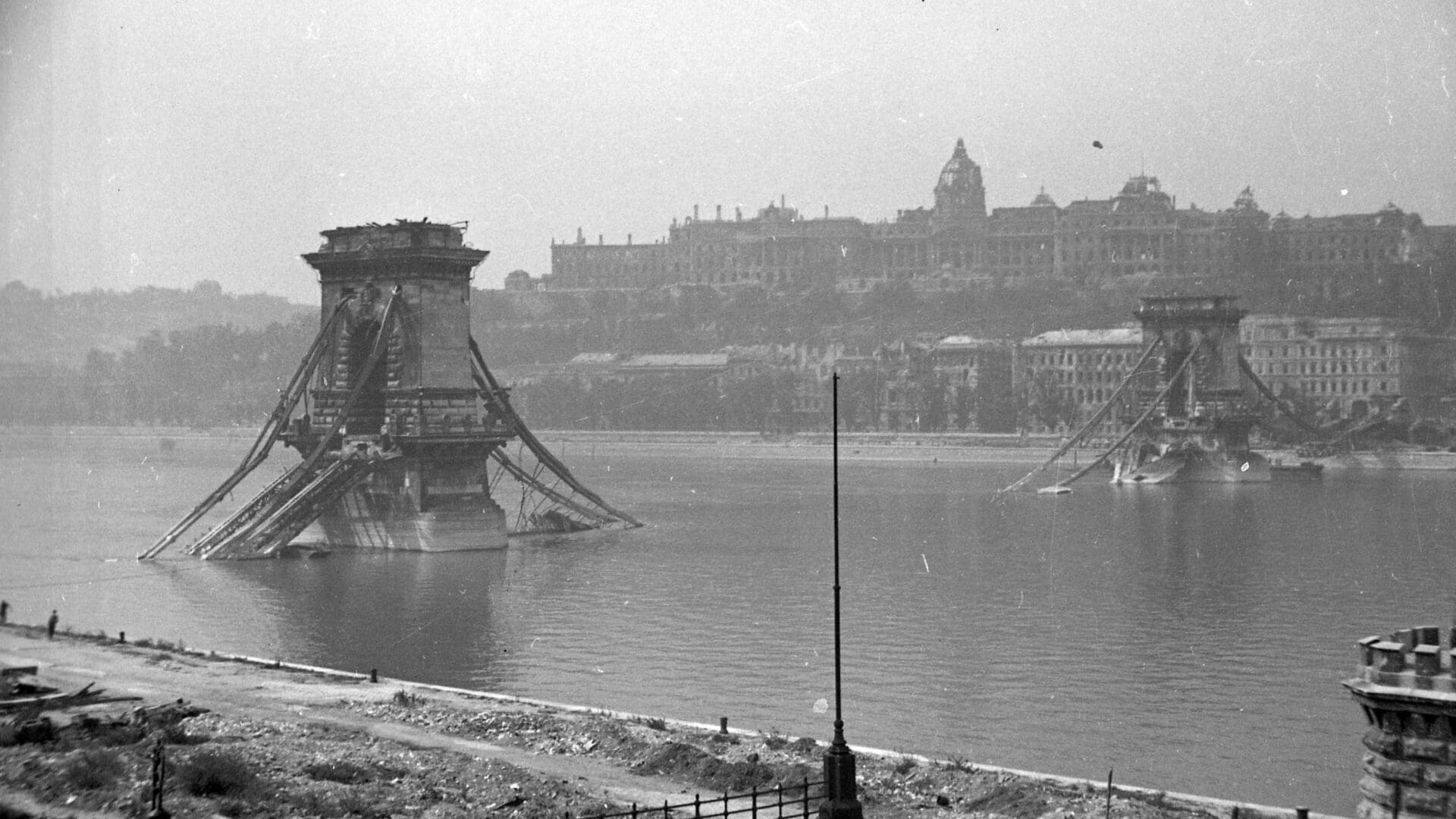The incidents that happened in Budapest over the weekend and on Monday can be better understood if we place them in context. The pretext under which radical leftists and some extreme right-wing elements felt the need to run amok in the Hungarian capital city is a historical event that took place 78 years ago.
What Do We Commemorate On 11 February?
On the Day of Remembrance of the Siege of Budapest, we commemorate the military campaign that resulted in the highest number of civilian casualties in World War II, culminating in the attempted breakout of Buda on 11 February 1945.
The siege of Budapest was a very significant event, with half of the Red Army’s losses in Hungary occurring there. The actual siege lasted for 102 days, almost half of which the defenders fought through in full encirclement. The bloody fighting resulted in 76,000 civilian casualties (killed or deported), while the number of Hungarian soldiers killed or taken POW was 29,500.
During the siege of the capital, another war was being waged: that of the Arrow Cross against the Jews of the capital. Of the 38,000 direct civilian victims of the siege, 14,000 were of Jewish origin, even though they only accounted for about 15 per cent of the population in the capital.
By the end of the blockade, Soviet troops had completely surrounded the German and Hungarian soldiers defending the Buda Castle. The hopelessness of the fight and the depletion of reserves led the castle defenders to attempt a desperate break to try and reach their own front line. Between 11 and 16 February, nearly 20,000 people were killed in the operation and at least as many were taken prisoner by the Soviets.
Yet, despite the significance of the events and the many victims, this event is not part of the public consciousness, and there is no complete consensus among historians on very fundamental issues.
The Role of the Far-Right
While a number of civilians and families also commemorate the victims of the siege and the attempt at breaking out of the Soviet encirclement, perhaps as a response to the silence of Communist historians during the past regime, neo-Nazis, skinheads, and other far-right elements have taken to commemorating the events as well. The commemorations organised on what the neo-Nazis call ‘The Day of Honour’ (Tag der Ehre in German) attract foreign extremists, many of whom arrive from Germany.
Their narrative, of course, is that the ‘heroic Nazis’ and their Hungarian companions tried to defend Europe from the Communist and Jewish threat. They glorify the senseless deaths of Hungarian soldiers, and present the Jewish victims as the actual perpetrators.
These ‘commemorators’ regularly display far-right symbols, such as swastikas and the Arrow Cross (the symbol of pro-Nazi collaborators). According to the Hungarian penal code, the public display of totalitarian symbols, which include the hammer and sickle and the five-pointed red star, is illegal if it disturbs ‘public peace and order’ according to the current Hungarian penal code, but police rarely intervene at these far-right marches—a fact that has drawn criticism over the years. Granted, the police also rarely intervene against those brandishing Communist totalitarian symbols.
In the past, such far-right commemorations were regularly attended by Jobbik politicians—the very same Jobbik which, today, stands in alliance with the left-wing opposition.
Other Commemorators of the Day of Remembrance of the Siege of Budapest
Aside from skinheads and neo-Nazis, other controversial public figures have paid homage to the 1944-45 events as well.
In 2021, a ‘memorial run’ was organised in remembrance of the fallen German military commander of Budapest, Gerhard Schmidhuber. This event was held by historian and pundit Krisztián Ungváry, a regular critic of the Orbán administration, who has recently become a lecturer at the Central European University.
Ungváry has also attracted serious reproval from Hungarian Holocaust scholars for having said in a 2021 documentary that the Germans did not commit atrocities against the Jewish populace of Budapest.








